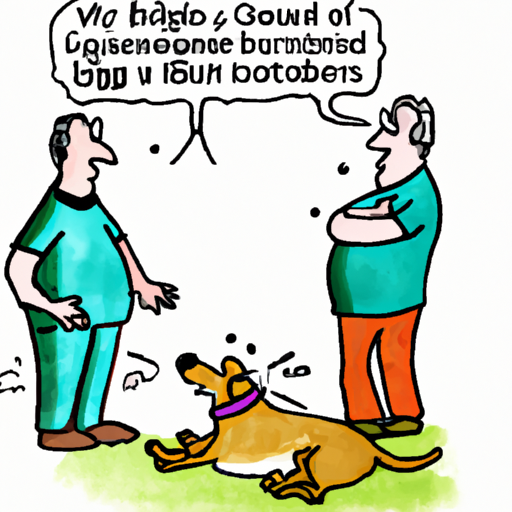The sound of a gurgling stomach is a familiar one, but when it’s coming from your dog, it can be a cause for concern. As a caregiver, you’re understandably worried. This guide will provide you with the insights you need to understand what’s happening and how to respond.
1. Understanding Your Dog’s Digestive System
Understanding what’s normal for your dog’s digestive system can help you identify when something’s amiss. Dogs, like humans, have a complex digestive system that involves a series of chemical reactions and muscle contractions. These are often accompanied by sounds, including the occasional gurgle.
-
Chewing and Swallowing: Dogs’ teeth are designed to tear and crush food. As they chew, their salivary glands produce enzymes to start breaking down the food.
-
Stomach and Small Intestine: After swallowing, food travels down the esophagus to the stomach, where it’s mixed with stomach acid and enzymes. This process can create gurgling sounds.
-
Large Intestine: The remaining nutrients are absorbed in the large intestine, and waste is formed. The movement of waste can also produce sounds.
2. Common Reasons for Belly Gurgling in Dogs
There are several reasons why your dog’s belly might be gurgling, ranging from perfectly normal to potentially serious.
-
Digestion: Regular digestion often causes noises. If your dog is acting normal and the sounds aren’t excessive, there’s probably no cause for concern.
-
Hunger: Your dog’s stomach might start to gurgle if they are hungry. The stomach produces acids, even when it’s empty. These acids can cause sounds when they slosh around.
-
Gas: If your dog has swallowed a lot of air or eaten something that’s causing gas, you might notice more gurgling than usual.
-
Gastrointestinal upset: If your dog has eaten something that’s upset their stomach, they may have more intense gurgling accompanied by other symptoms like vomiting or diarrhea.
3. When to Seek Veterinary Assistance
While occasional gurgling is normal, there are times when it’s a sign of a problem that requires veterinary assistance.
| Symptoms | Potential Causes |
|---|---|
| Prolonged gurgling, loss of appetite, vomiting, diarrhea | Gastroenteritis, pancreatitis, or a dietary indiscretion |
| Intense gurgling, restlessness, bloating, unsuccessful attempts to vomit | Bloat, a life-threatening condition |
4. How to Prevent Excessive Belly Gurgling
Preventive measures can reduce the chance of excessive belly gurgling in your dog.
-
Diet: Feed your dog a balanced, high-quality diet suitable for their age, breed, and health status. Avoid giving them scraps from your table.
-
Exercise: Regular exercise can help keep your dog’s digestive system healthy.
-
Regular Vet Check-ups: Regular veterinary check-ups can help identify any potential issues early.
5. Home Remedies for a Gurgling Belly
If your vet has ruled out serious health issues, there are a few home remedies you can try to alleviate your dog’s discomfort.
-
Fasting: If your dog’s stomach is upset, a brief fast can give their digestive system a chance to reset.
-
Bland Diet: Foods like boiled chicken and rice can be easier on your dog’s stomach.
-
Probiotics: Probiotics can help balance your dog’s digestive system.
FAQ
Q: How long should gurgling last?
A: Occasional gurgling is normal. If it’s continuous or accompanied by other symptoms, consult your vet.
Q: Can I give my dog human medication for a gurgling stomach?
A: Never give your dog medication without consulting your vet. Some human medications are toxic to dogs.
Q: Can stress cause a dog’s belly to gurgle?
A: Yes, stress can cause changes in a dog’s digestive system, which can lead to gurgling.
Q: What can I feed my dog if they have an upset stomach?
A: A bland diet of boiled chicken and rice can be easier on your dog’s stomach. Always consult your vet before changing your dog’s diet.



